March 5 is:
National Cheese Doodle Day
On this day in 1496, King Henry VII of England issued letters to John Cabot and his sons, authorizing them to explore unknown lands.
1616 – Nicolaus Copernicus‘s book, De revolutionibus orbium coelestium was banned by the Catholic Church. He dared to think that the Sun , not the Earth, was the center of the known universe. One of his quotes: “To know that we know what we know, and to know that we do not know what we do not know, that is true knowledge.”
Boston Massacre, anniversary of the March 5, 1770 death of Crispus Attucks, American Revolutionary leader who led the group whose anti-British defiance precipitated the Boston Massacre. Honored as the first American black man to die for freedom. At the subsequent trial, the soldiers are defended by future U.S. president John Adams. Celebrated as Crispus Attucks Day.
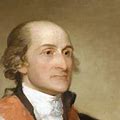 Publication of Federalist Paper #64: The Powers of the Senate written by John Jay in 1788. John Jay wrote several early Papers (#2-5) and came back to write #64. This paper discusses the process of making treaties with foreign countries. Some felt that this power should be given to the House of Representatives. Jay argues that a two year term of office is not sufficient to understand all the issues involved in a treaty. He argues that the power properly belongs to the President with consent of the Congress. From teaparty911.com:
Publication of Federalist Paper #64: The Powers of the Senate written by John Jay in 1788. John Jay wrote several early Papers (#2-5) and came back to write #64. This paper discusses the process of making treaties with foreign countries. Some felt that this power should be given to the House of Representatives. Jay argues that a two year term of office is not sufficient to understand all the issues involved in a treaty. He argues that the power properly belongs to the President with consent of the Congress. From teaparty911.com:
This very important power which relates to war, peace, and commerce has been given by the convention to the president chosen by a select body of electors and the senate appointed by state legislatures. This ensures that men of quality and character and ages thirty years or greater will be making treaties in a manner conducive to the public good and will afford the highest security. Further these men are those that best understand our national interests whether in relation to the several states or foreign nations.
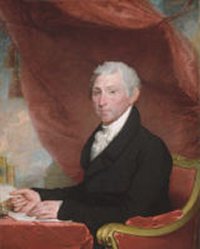 In 1821 James Monroe became the first President to be inaugurated on March 5th; March 4th was on a Sunday.
In 1821 James Monroe became the first President to be inaugurated on March 5th; March 4th was on a Sunday.
Birthday of James Merritt Ives (March 5, 1824), American lithographer; partner in the firm of Currier & Ives
1946 – Winston Churchill coined the phrase “Iron Curtain” in his speech at Westminster College, Missouri.
On March 5, 1953, Soviet leader Joseph Stalin died. Josef Stalin became the leader of Soviet Union after Lenin died in 1924, and launched government programs that would make the country more progressive. His attempt to move to the new economy, however, led to the starvation of nearly 10 million people. With many intellectuals and activists not in favor of his leadership, Stalin also launched the “Great Purge”, killing every person who opposed him and his ideals. It is estimated that Stalin was responsible for 23 million deaths, second in murderous dictatorship only to Mao Zedong.
1973 Yankee pitchers Fritz Peterson and Mike Kekich announced they had swapped wives, known as the most scandalous trade in baseball history.


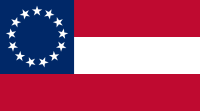
 1933 –
1933 – 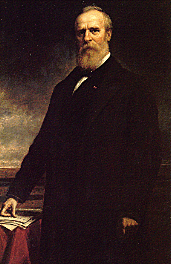
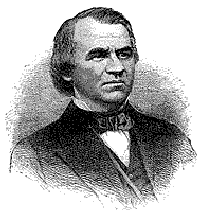
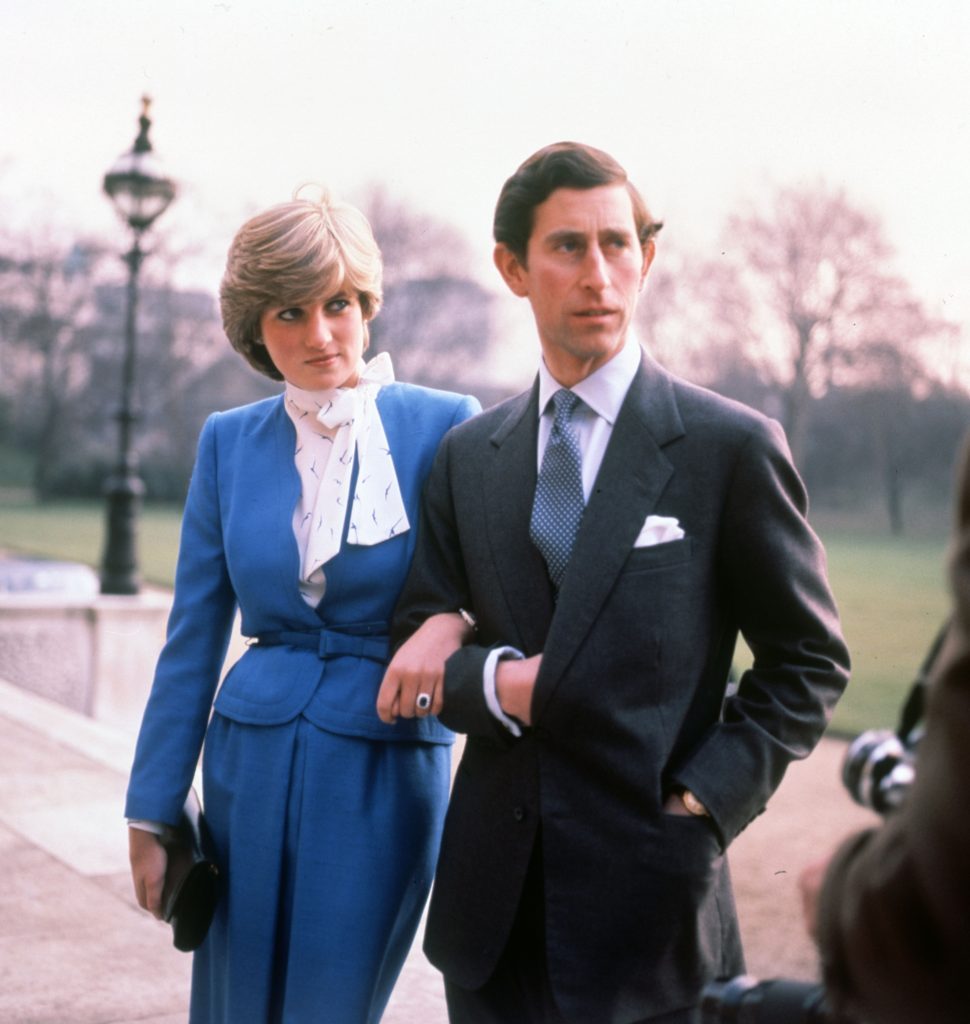 Buckingham Palace announced the engagement of Britain’s Prince Charles to Lady Diana Spencer. They married July 29, 1981; had two sons, William in 1982 and Harry in 1984; divorced in 1996. Diana died in a car crash August 31, 1997. Charles married Camilla Parker Bowles in April 2005. He became King Charles III upon the death of his mother, Queen Elizabeth, on Sept 8, 2022.
Buckingham Palace announced the engagement of Britain’s Prince Charles to Lady Diana Spencer. They married July 29, 1981; had two sons, William in 1982 and Harry in 1984; divorced in 1996. Diana died in a car crash August 31, 1997. Charles married Camilla Parker Bowles in April 2005. He became King Charles III upon the death of his mother, Queen Elizabeth, on Sept 8, 2022.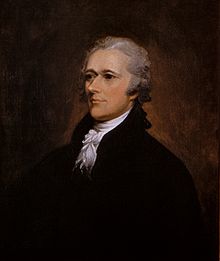 Publication of
Publication of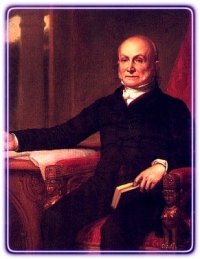 “This is the last of Earth! I am content!” were the final words spoken by
“This is the last of Earth! I am content!” were the final words spoken by 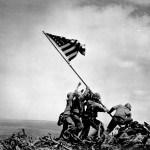 Iwo Jima Day, anniversary of the raising of the American flag atop Mount Suribachi in 1945
Iwo Jima Day, anniversary of the raising of the American flag atop Mount Suribachi in 1945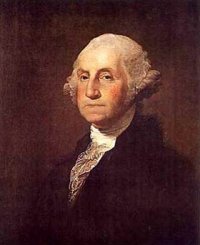 Birthday of
Birthday of 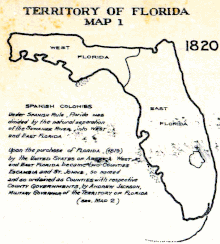 1821 Spain sold eastern
1821 Spain sold eastern  2006 “Insurgents” (aka barbaric terrorists), affiliated with Al-Qaida, destroyed the golden dome of one of Iraq’s holiest Shiite shrines, the
2006 “Insurgents” (aka barbaric terrorists), affiliated with Al-Qaida, destroyed the golden dome of one of Iraq’s holiest Shiite shrines, the  Roses: The red rose is the universal symbol of romantic love.
Roses: The red rose is the universal symbol of romantic love. Forget-Me-Not – These perennial flowers are a song of love or friendship. Pretty blue flowers are irresistible.
Forget-Me-Not – These perennial flowers are a song of love or friendship. Pretty blue flowers are irresistible. Love-In-A-Mist – When you are in love, you’re on Cloud Nine.
Love-In-A-Mist – When you are in love, you’re on Cloud Nine.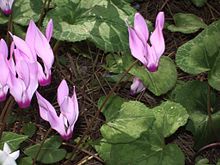 Cyclamen – This popular Valentine’s Day gift has heart-shaped leaves. The most popular are varieties are those with red flowers.
Cyclamen – This popular Valentine’s Day gift has heart-shaped leaves. The most popular are varieties are those with red flowers.
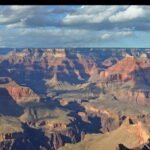
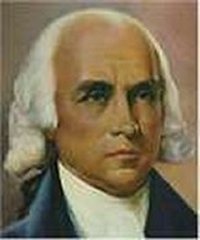 Publication of
Publication of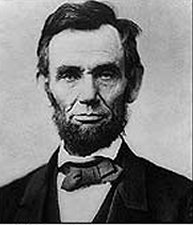 Birthday of
Birthday of 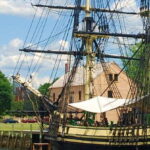
 Birthday of
Birthday of 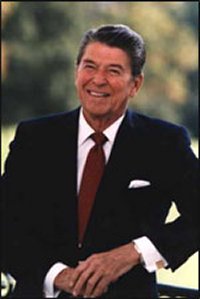 Birthday of
Birthday of 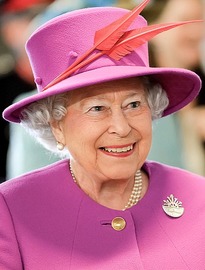 Elizabeth II of the United Kingdom became Queen upon the death of her father, King George VI, (Albert Frederick Arthur George) Per BBC.co.uk:
Elizabeth II of the United Kingdom became Queen upon the death of her father, King George VI, (Albert Frederick Arthur George) Per BBC.co.uk: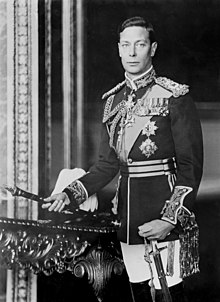 The King had suffered a coronary thrombosis – a fatal blood clot to the heart – soon after falling asleep. He was also revealed to have been suffering from lung cancer.
The King had suffered a coronary thrombosis – a fatal blood clot to the heart – soon after falling asleep. He was also revealed to have been suffering from lung cancer.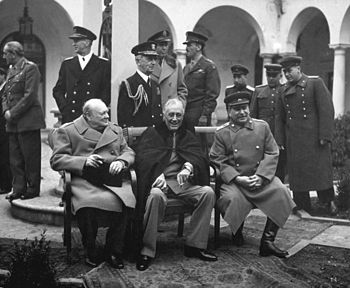 World War II: The Yalta Conference between the “Big Three” (Churchill, Roosevelt, and Stalin) opened at the Livadia Palace in the Crimea on February 4, 1945. Roosevelt died two months later.
World War II: The Yalta Conference between the “Big Three” (Churchill, Roosevelt, and Stalin) opened at the Livadia Palace in the Crimea on February 4, 1945. Roosevelt died two months later.